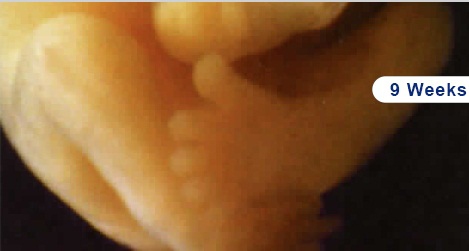You’re pregnant and there’s no heartbeat at 9 weeks, and maybe still no heartbeat at10 weeks pregnant. Is this normal? The lack of audible heartbeat can be frightening if you don’t know what to expect. But the truth is, at least for most cases, no heartbeat at 9 weeks pregnant is normal. Then when will your baby’s heartbeat be detected, and what will it sound like? Let's find out together.

Detecting Your Baby’s Heartbeat
Your baby’s heartbeat, also known as fetal heart tones (FHT), will become audible sometime during the first trimester. Your caregiver will use a fetal Doppler during a routine prenatal visit to listen for the heartbeat. This is a handheld device that uses ultrasound technology. First she’ll apply ultrasound gel to the machine and then pass it over your abdomen until she can pick up the sound of the baby’s beating heart.
Your baby’s heart will probably start beating at around 6 weeks, but can’t normally be detected, even with a Doppler, until at least 10 weeks, and it is even more common to first hear it between 12 and 14 weeks.
How early the baby’s heartbeat can be detected depends on several variables, including your weight, the baby’s position within your uterus, and how accurately your due date was calculated.
What Will the Heartbeat Sound Like?
Many women describe the sound of their baby’s heartbeat in utero like a herd of galloping horses. That’s because not only do you have the sounds of the placenta gurgling and swishing in the background, but the baby’s heartbeat is very rapid during the early weeks. It is not uncommon for the rate to be as high as 180 beats per minute (BPM) during the first 12 weeks of pregnancy. After that time, it usually slows to anywhere from 120 BPM to 160 BPM.
For many women, this is the moment when the pregnancy becomes real for them. For some expectant parents, it is hard to believe there is actually another human growing inside them until they first hear the heartbeat. If daddy is unable to accompany them to the doctor, many ladies choose to record the sounds with their cell phone, so they can share the moment with the other parent.
- 1.

View All Comments /Add Comment